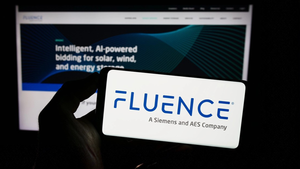Gen Z workers report higher levels of anxiety and depression, decreased productivity due to mental health, and stigma as a more significant barrier to care than their Boomer and Gen X counterparts
New research by The Hartford, a leading provider of workers’ compensation and employee benefits, found Gen Z workers are the most in need of mental health support compared to other generations—53% are highly stressed in a typical week and 44% feel depressed or anxious at least a few times per week—yet are less likely to believe their employers care greatly about their mental health (51%). Also, Gen Z workers are more likely than other generations to report stigma prevents them from seeking mental health care (41%).
While the youngest generations in the workplace are more likely to say their mental health affects their productivity (38% Gen Z and 32% Millennials), the oldest generation in the workplace are less likely to report mental health impacts (Baby Boomer 8%). The Hartford’s research could foretell an even greater effect on worker productivity and the bottom line of businesses, as an estimated 75 million Boomers are expected to retire by 2030—the year the U.S. workforce is projected to be two-thirds Millennial and Gen Z.1
“The stakes could not be higher,” said The Hartford’s Chairman and CEO Christopher Swift. “The future of work depends on meaningful action today to support next-gen workers’ emotional and mental well-being. Employers have the power to transform mental health through empathetic leadership, inclusive and collaborative workplaces that foster connection, and more resources tailored to the unique needs of employees and their families.”
Year over year, The Hartford’s Future of Benefits Study has shown a connection between employee mental well-being, mental health support, and the impact on a company’s bottom line. For example, nearly one-third (30%) of U.S. workers in 2023 reported feeling depressed or anxious at least a few times a week, compared to 34% in 2022. Also, a majority of Human Resources (HR) professionals (64%) feel the deteriorating mental health of their workforce has a negative financial impact on their company, which is down compared to 71% last year.
A majority of U.S. workers believe employers should provide more mental health training for managers (58%), additional mental health tools for employees (59%), and better resources for their dependents (58%). Also, a majority of HR professionals agree managers need additional training (71%) and mental health resources (65%), but half said a lack of funding prevents them from doing so.
Swift, a vocal advocate for stigma-free workplaces, will discuss the well-being of next-gen workers during a panel titled “A View from the Top: Leaders Prioritizing People, Policy, and Potential” at the 26th Annual Milken Institute Global Conference.
To better support employers, The Hartford is expanding its partnerships with the Milken Institute, a nonpartisan, nonprofit think tank, and the National Alliance on Mental Illness (NAMI), the nation's largest grassroots mental health organization dedicated to building better lives for the millions of Americans affected by mental illness. With these partners, The Hartford will increase its ongoing research and provide educational programs and resources for business leaders and workers across the U.S.
Survey Methodology
Fielded Feb. 14–28, 2023, The Hartford’s 2023 Future of Benefits Study included 500 human resource (HR) benefit decision-makers and 1,100 U.S. workers. The margin of error is employer +/- 4% and worker +/-3% at a 95% confidence level. The ages for the generations in The Hartford’s 2023 Future of Benefits Study are: 1997 to 2004 (ages 19-26) for Gen Z; 1998 to 1981 (ages 27-42) for Millennials; 1967 to 1980 (ages 43-56) for Gen X; and 1955 to 1966 (ages 57-68) for Baby Boomers. The full report on The Hartford’s 2023 Future of Benefits Study will be available in May.
About The Hartford
The Hartford is a leader in property and casualty insurance, group benefits and mutual funds. With more than 200 years of expertise, The Hartford is widely recognized for its service excellence, sustainability practices, trust and integrity. More information on the company and its financial performance is available at https://www.thehartford.com.
The Hartford Financial Services Group, Inc., (NYSE: HIG) operates through its subsidiaries under the brand name, The Hartford, and is headquartered in Hartford, Connecticut. For additional details, please read The Hartford’s legal notice.
HIG-C
Some of the statements in this release may be considered forward-looking statements as defined in the Private Securities Litigation Reform Act of 1995. We caution investors that these forward-looking statements are not guarantees of future performance, and actual results may differ materially. Investors should consider the important risks and uncertainties that may cause actual results to differ. These important risks and uncertainties include those discussed in our 2022 Annual Report on Form 10-K, subsequent Quarterly Reports on Forms 10-Q, and the other filings we make with the Securities and Exchange Commission. We assume no obligation to update this release, which speaks as of the date issued.
From time to time, The Hartford may use its website and/or social media outlets, such as Twitter and Facebook, to disseminate material company information. Financial and other important information regarding The Hartford is routinely accessible through and posted on our website at https://ir.thehartford.com. In addition, you may automatically receive email alerts and other information about The Hartford when you enroll your email address by visiting the “Email Alerts” section at https://ir.thehartford.com.
1 An Early Outlook of a Millennial-led Economy in 2030 - UPCEA
View source version on businesswire.com: https://www.businesswire.com/news/home/20230420005584/en/
Contacts
Media:
Kelly Carter
Kelly.carter@thehartford.com






